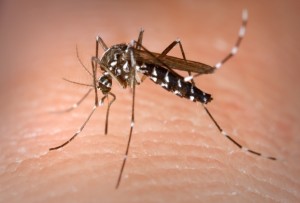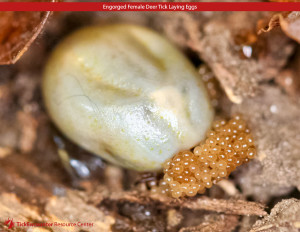Summer is officially over, kids are back in school, winter is coming, so it’s time to think about Thanksgiving and forget about ticks and mosquitoes, right? Not exactly. Mosquito and tick protection is a year-round concern!
Ticks and mosquitoes are doing their own planning. In short, they’re planning to be in your yard next spring in even larger numbers. Now is the best time to eliminate ticks and mosquitoes. Here’s why.
If you’re a regular reader of this blog, you know by now that October and November are breeding season for  ticks. Mosquitoes breed on average every 4 weeks during their 2-3 month life cycle. Cold weather will kill off a few species but most mosquitoes will simply go dormant in cold weather. Eggs laid this fall won’t hatch until next spring when the weather warms.
ticks. Mosquitoes breed on average every 4 weeks during their 2-3 month life cycle. Cold weather will kill off a few species but most mosquitoes will simply go dormant in cold weather. Eggs laid this fall won’t hatch until next spring when the weather warms.
Blacklegged ticks are most responsible for Lyme Disease and are commonly called Deer Ticks for a reason. Now is the time of year female ticks hitch a ride and drink a blood meal necessary to make eggs. The white-tailed deer is the best resource to provide that last blood meal. They are large enough to supply fully-grown ticks with the necessary blood meal they need to lay eggs. The eggs laid this fall will hatch next spring into larvae. The male ticks don’t need a blood meal since their life is over as adults but they hitch a ride on the deer to simply mate with the females. One deer can nourish thousands of female ticks with their last blood meal before they lay their eggs.
The females will leave most of these tick eggs in the nests of white – footed mice. These mice  are prevalent around Central Mass homes and in every state where Lyme Disease is endemic. The newly hatched eggs will become larvae in the spring. The larvae ticks will need a blood meal to move onto the nymph stage later in the spring. Their first blood meal is often taken from the mouse that provided them a home during the winter.
are prevalent around Central Mass homes and in every state where Lyme Disease is endemic. The newly hatched eggs will become larvae in the spring. The larvae ticks will need a blood meal to move onto the nymph stage later in the spring. Their first blood meal is often taken from the mouse that provided them a home during the winter.
As for female mosquitoes, they will deposit their eggs in damp soil, tree knotholes and anywhere that spring rains will allow the eggs to hatch when the weather turns warm. Like ticks, cold will not kill mosquito eggs. Predation is their main enemy but there are few bugs or other insects out during the winter, so few eggs will be eliminated.
By eliminating adult ticks and mosquitoes in the fall, you can reduce their numbers in your yard next spring and summer. October and November are the peak months for female ticks to get their last blood meal and lay their eggs. You can learn more about the tick life cycle at the American Lyme Disease Foundation website discussing Deer Tick Ecology.
Even if you’re not currently using a tick and mosquito perimeter spray, you can still reduce ticks in your yard next spring. A tick tube program is a highly effective method for eliminating the tick population in your yard before spring. It is specifically designed to eliminate nymph ticks now that will be adults late next summer. A one-time application a barrier spray now will reduce the adult population of both insects, thereby reducing the number of eggs they can lay in or near your yard. Now is the best time to begin protecting your family and pets from infectious bites next spring.

One thought on “Fall Is The Best Time To Eliminate Ticks And Mosquitoes in MA”
Comments are closed.